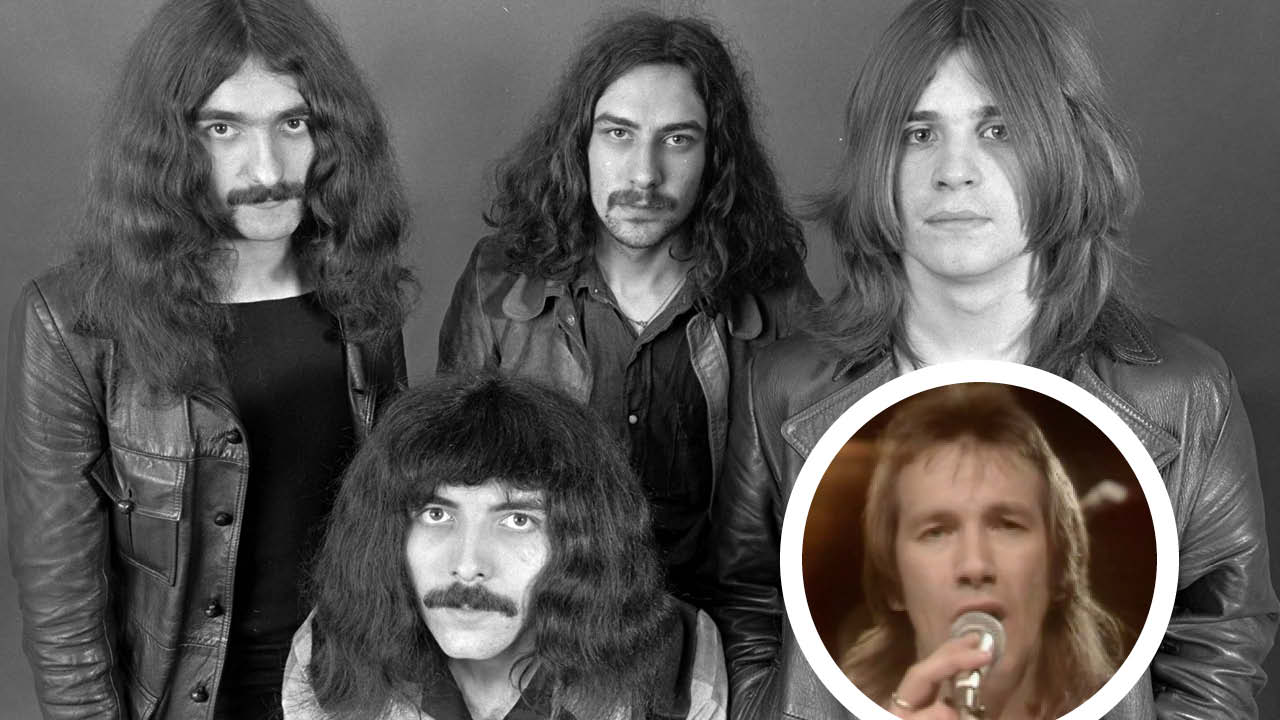
Black Sabbath are rightly enshrined as one of the forefathers of heavy metal. The band’s original line-up – singer Ozzy Osbourne, guitarist Tony Iommi, bassist Geezer Butler and drummer Bill Ward – were responsible for one of the greatest run of albums in music history, stretching from 1970’s self-titled debut to 1975’s Sabotage.
But following 1976’s Technical Ecstasy, the wheels started to wobble on the Sabbath wagon. The band themselves had just emerged from a costly battle with their ex-manager, tax bills were mounting up, their lifestyles were finally catching up with them and record sales were starting to tail off.
“I’d had enough,” Ozzy wrote in his 2009 autobiography, I Am Ozzy. “There didn’t seem to be any point any more. None of us was getting on. We were spending more time in meetings with lawyers than we were writing songs; we were all exhausted from touring the world pretty much non-stop for six years; and we were out of our minds on booze and drugs.”
In late 1977, Ozzy finally snapped. “One day, I just walked out of a rehearsal and didn’t come back,” he said of his decision to abruptly quit the band he co-founded nearly a decade earlier.
For the rest of Sabbath, it left a huge problem: how do you replace such a charismatic frontman as Ozzy? Rather than go through the chore of sitting through endless auditions, the band decided to tap up someone they knew. Enter Dave Walker.
Born in Walsall, a few miles northwest of Sabbath’s hometown of Birmingham, Walker had been a member of early 60s band The Redcaps, who counted Tony Iommi as one of their fans. Walker subsequently went on to replace future ELO leader Jeff Lynne in his pre-fame band The Idle Race, record an album with choogle-rockers Savoy Brown, and even briefly joined Fleetwood Mac (he sings on two tracks on 1973’s largely forgotten Penguin album). But by 1977, he could see his chances of hitting the big time disappearing in the rear view mirror. And then he got a message asking if he wanted to sing for Black Sabbath.
“I was in California with a band called Mistress that was falling apart,” Walker told Classic Rock in 2014. “I got a call from Sabbath’s road manager, and I flew over to start rehearsals at an old mill near Rockfield Studios in Monmouth.”
The rest of the band had continued writing songs for the follow-up to Technical Ecstasy despite Ozzy’s departure, which they played for Walker.
“Right away they let me hear the tracks they’d been working on and told me they needed lyrics,” he said. “There wasn’t what I’d call one complete song, just reels of tape with little ideas on them. I wrote a shitload of lyrics, but I had no idea that Geezer was their main lyricist.”
Initially, Black Sabbath seemed committed to making it work with their new singer. On January 6, 1978, the band and Walker appeared on Look! Hear!, a local TV show produced in Birmingham, where they performed Sabbath classic War Pigs and a brand new song titled Junior’s Eyes. No footage exists of the show, though audio of the latter song appears on YouTube, illustrating how different Walker’s bluesy vocals are from Ozzy’s demented howl.
Ozzy himself had tried to launch a new band, an early version of Blizzard Of Ozz featuring members of the band Necromandus, but was struggling to get it together. Sabbath themselves hadn’t completely severed ties with their former singer. Walker told Classic Rock that he even met his predecessor.
“Ozzy came to meet us one day in a pub,” he said. “I felt really sad for him, because he was literally shaking. I’ve been around the block with drugs but when I saw poor Ozzy I thought, ‘God almighty.’ There was no suggestion that he might come back, but I had the feeling he was having second thoughts.”
Walker’s instincts proved right, though it was also becoming apparent that things weren’t working out for him in Sabbath.
“I knew things weren’t going well musically, and it was made worse by the fact that my wife and Bill Ward’s wife clashed,” he recalled.
The end, when it came, was sudden. “One day I turned up where they were rehearsing near Evesham and they were having a meeting, after which Bill told me, ‘We’re in, you’re out,’” Walker recalled. “No warning. I still don’t even know if Ozzy had agreed to come back then.”
Whatever the chronology, Walker’s tenure in the band had lasted just a few months. When Sabbath released their next album, Never Say Die!, in September 1978, it featured the reinstalled Ozzy on vocals. Junior’s Eyes, the song which Walker had sung on that lone TV appearance, made it onto the album, albeit with retooled lyrics.
As for Sabbath, they ploughed on with Ozzy, but the underpowered Never Say Die! had failed to recapture past glories, and the singer’s alcohol and substance problems were becoming an insurmountable issue. In April 1979, he left the band once more – though this time he was fired by his bandmates, who replaced him with Ronnie James Dio and made 1980’s classic Heaven And Hell album.
Dave Walker would continue playing music with his eponymous band and, later, a reunited Savoy Brown. And in his defence, he wasn’t the only singer to have been recruited by Sabbath and then dispensed with shortly afterwards – the same fate befell David Donato, who was briefly a member in 1984. Walker himself was sanguine about his brief stint in Black Sabbath.
“I knew that on the artistic side we really weren’t compatible,” he said. “It was kind of cool, but there was a lot left to be desired.”







